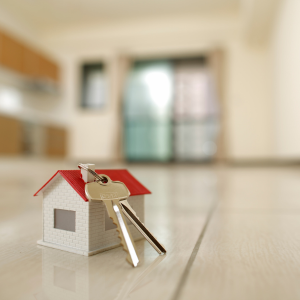Because of the market, your own wants, and your financial goals, it can be hard to choose whether to sell or rent out your home on Oahu, Hawaii. The Hawaii market is busy and well-known, so this pick is important. A rented home on Oahu could bring in a lot of money if properly cared for. If you rent out your home, you might get a steady cash flow, which will also appreciate over time. This book has business advice to help you take better care of your Hawaii home. Right now, if you want to be smart, learn about real estate.
Understanding the Hawaii Property Market
The real estate market in Hawaii has some good and some bad points. Many people who want to buy homes or spend money go to Oahu. Because the market is so busy, you need to know about changes, trends, and things only found in your area. A lot of people know that Oahu has a wide range of homes. Know the market trends well to help you choose whether to sell or rent your house. Find out what the latest trends are in real estate and how hard it is to run rental homes in Hawaii. This will give you a full picture that will help you choose an investment that will pay off in the long run.
Navigating Property Trends in Oahu, HI
Oahu’s diverse real estate market requires staying current to invest wisely. Tourism, new residents, and restricted natural expansion affect Hawaii’s market. These factors make the real estate market complex and dynamic, allowing growth if trends are predicted and followed. Investors and property owners can improve their strategies by understanding how these elements affect Oahu’s market. Visitors and movers seeking short-to long-term stays have increased rental property demand. Successful Oahu rentals provide property owners with profitable lease options.
Some Oahu neighborhoods have hotter property markets. Modern, cultural, and seaside districts offer higher rents and appreciation. Knowing these high-demand neighborhoods guarantees your home attracts high-paying tenants, maximizing rental income. Local real estate brokers advise homeowners on investment and market trends. Oahu real estate agents can help you track or take advantage of trends.
Furthermore, real estate market movements can dramatically affect sales and rentals. Market data suggest Oahu’s real estate is durable, but global economic conditions and tourist patterns can affect values. Understanding trends helps property owners sell early or update facilities to boost rental demand during downturns. Tracking these market patterns will help you foresee changes and position your property in Oahu’s market. Contact us today to learn how to make the most of your investment.
Challenges of Owning Rental Property in Hawaii
Hawaii’s economy and location make it hard to own or lease homes, especially on Oahu. The people who own Hawaii don’t want to fix things. In the summer, many people come and live on the island. However, the weather speeds up damage. You should take better care of roofs, wood, and paint when it’s damp. If they want to keep renters, they need to budget for these costs and make sure rents are always current.
Hawaii renters have rights and rules that you should know about. With renter-friendly rules, owners who know the law can avoid trouble and save money on legal fees. To have a good connection, the landlord and the tenant should be able to talk to each other and agree on things. Better renters do not have as many problems, moves, and spaces.
Hawaiians who rent out their homes have bigger money worries than the law lets them have. Not paying your taxes, bills, and insurance on time costs you money. They must ensure that the loan amount and the rent money are equal. If Oahu renters look into the market and make a budget, they can get the most out of their houses. A good Hawaii real estate agent can teach you about the market and how to make more money.
Where you live affects both selling and renting houses. Hawaii’s beauty draws many buyers, but strict land and building rules limit new construction. With fewer homes available, prices continue to rise, driving strong demand and more sales. Homeowners deciding whether to sell for profit or keep renting for long-term value should weigh both options carefully. Oahu Home Buyers can help you navigate these choices and find the best path for your goals.
Evaluating Your Rental Property Investment
To find out how much your Oahu, HI rental property is worth, you should think about many useful and valuable things. You need to know how much a house costs, how much it could earn, and how much it costs to maintain it before you buy it in Hawaii. If people who own homes really think about these things, they can decide if their business should sell or rent out their homes. You can make smart decisions about the future of your home if you know how to deal with these important issues.
Calculating Ownership Costs and Return on Investment
Before you look at your Oahu rental home again, do some math. How much does it cost to own? How much money could it make? Things like the loans, taxes, insurance, and down payment cost more than they did on the island. There are a lot of tourists in Hawaii, which means owners have both chances and extra work to do.
A lot of rent money could come in from people who come to stay or work there. However, units that are empty during slow times might leave the bank with less money. You should set fair prices if you want to keep your pay steady. You can also make long-term gains by home prices going up in towns or on the beach, though changes in the market may slow growth.
Taxes and benefits that are only available in Hawaii can also change how much your property is worth. If you want to get the most out of your money, you should work with an agent on Oahu. They can help you figure out what to do with your future and how much to charge for your rental house.
Maintenance Expenses for Hawaii Properties
The warm weather on Oahu makes it hard to maintain rental houses. When damp, roofs, supports, wood parts, and paint on the outside wear out faster. As time goes on, home values rise, so take good care of yours to keep it looking nice and useful.
The air is saltier near the water, which makes things worse because metal and building materials break down there. If you plan to make changes and stick to your cash flow, you can keep costs low and raise the value of your home over time. When you buy things that will last and make sure people are happy, you can make a lot of money.
But many people want to rent on Oahu, and landlords who give their renters what they want make more money. Rental prices might go up for homes with new green features that use less energy. The extra money could be used to pay for fixes. In the long run, people who plan and work with local real estate agents can keep the value of their homes and make the most money.
When to Consider a Property Sale in Hawaii
If you want to sell your Hawaii home, you need to be aware of how your life and the market have changed. If you buy an island home, you can sell it or rent it out to make money. I don’t know what to do right now. You should think about your money goals, the market, and when you want to sell your home. People who own land can make smart choices when they know these things. So, they can weigh the pros and cons of selling against the pros and cons of renting. It would help you and your business in Hawaii if you knew more about these things.
Factors Impacting the Decision to Sell
The real estate market in Hawaii is shaped by a lot of tourists, not much land, and high demand. This means that the value of real estate is always appealing. People who own homes should only sell them when the market is rising or demand is high, so that they can get the most money back. Changes in the market, interest rates, and tourists are also very important when deciding whether to hold or sell.
As a landlord, you have to think about the pros and cons of the market as well as the facts of managing rental homes. When you live in Hawaii, things get worn out quickly, and it can be hard to keep track of all your renters. Because of this, a sale seems like a good idea. It’s possible to get out of a trade and still make money if you know how the market goes through waves.
It’s just as important to deal with personal issues. People might sell their homes for cash because they are moving, retiring, or making new financial goals. Selling your Oahu house faster can also avoid the stress and time needed to deal with renters. This will make things easier for you while taking advantage of Hawaii’s high property prices.
Understanding Property Taxes in Hawaii
People in Hawaii often choose to sell or rent their homes because of the high taxes that come with them. Rates aren’t too high compared to the rest of the country, but the value of homes in the area can change how much money the business makes. Some first homes may be exempt, but owners must consider how the tax rules affect their long-term plans.
If you don’t know about the new tax rules, it might not be as appealing to borrow money or sell things. Considering Hawaii’s high property values and good growth possibilities, rising debt may sometimes make it more appealing to sell. A tax pro can help you understand your choices and get the best results.
Taxes on your home can change how much money you can make from rent and sales. Because these prices are part of owners’ bigger real estate plans, they can tell if things are going well enough to help them reach their financial goals. People who own land in Hawaii should study to make the best choices to earn the most money.
Finding the Right Strategy for Your Investment Property
How much money you make when you rent out your Oahu, Hawaii home will depend on the plan you choose. Before deciding whether selling your investment property or renting it out is the better option, you should carefully evaluate the market, your home’s value, and your potential returns. Because of how the Oahu rental market works—and the unique factors that influence demand—this decision requires thoughtful consideration. Find out the pros and cons of selling and smart leasing to keep the rental income coming in. People can use this to ensure that the things they buy still help them reach their goals and align with how the market has changed.
Strategies for Maximizing Profit and Value
If you own a rental home on Oahu and want to make the most money, you must know the market and make smart changes. Some changes can be made to a rented property to attract renters who are willing to pay more, like installing solar panels or updating the inside. The Hawaii real estate market is very tough to get into. Homes that stand out tend to sell your house fast for cash in Honolulu, HI, and make more money over time.
You should also know what kinds of people rent apartments. Many people come to Oahu and stay for a long time. Leases should be more open so that rent stays the same, and more people want to rent. One way to do this is to rent out furnished apartments. Making renters happy lowers turnover and vacancy costs, leading to more money coming in.
Quickly sell something. Hawaii’s market is always changing because there isn’t enough space and many tourists. Trends can help you come out of a trade in a way that makes you money. Keep an eye on costs, make sure repairs are done right, and work with real estate agents with a lot of experience if owners want to get the most out of their rental income and property value.
Ready to sell your home in Oahu? At Oahu Home Buyers, we make the process quick, simple, and hassle-free. Skip costly repairs, avoid delays, and get a fair cash offer without the stress of traditional selling. We handle all the details so you can move forward with confidence. Contact us at (808) 333-3677 for your no-obligation cash offer!
FAQs:
What factors should be considered when deciding to sell or rent my Oahu property?
Key factors include market trends, financial goals, personal circumstances, and understanding the unique dynamics of Oahu’s real estate market. To make an informed decision, analyze ownership costs, potential return on investment, and the impact of local property taxes.
How do market trends in Oahu affect my property investment decisions?
Oahu’s real estate is influenced by tourism, new residents, and restricted natural growth. Staying informed about these trends helps anticipate shifts in demand and optimize your strategy to capitalize on high-demand areas and robust rental markets.
What are the challenges of managing rental properties in Oahu?
Challenges include high maintenance costs due to the tropical climate, navigating tenant-friendly laws, and balancing high ownership costs. Landlords should budget for maintenance and stay informed about rental regulations to minimize disputes.
How does Hawaii’s geographic setting impact real estate investments?
Hawaii’s limited land availability increases property values, offering lucrative selling opportunities but also higher acquisition costs. This scarcity requires careful consideration of market conditions to decide whether to sell or continue to rent.
What maintenance considerations are unique to properties in Oahu?
Oahu’s tropical climate accelerates wear and tear on structures and fixtures. Property owners should anticipate additional maintenance costs and invest in preventive measures to preserve property value and tenant satisfaction.
Helpful Oahu Blog Articles
- Sell A Condemned House In Oahu, HI
- House Sales During Bankruptcy In Oahu, HI
- Selling A House With Code Violations In Oahu, HI
- Leaving Your Oahu, HI Home Vacant
- Filing a Quitclaim Deed in Oahu, HI
- Sell a Home with Title Issues in Oahu, HI
- Selling Property with a Squatter in Oahu, HI
- Securing A Mortgage After Divorce In Oahu, HI
- Do You Need A Lawyer To Sell Your House In Oahu, HI?
- Oahu, Hawaii Property Tax Rate
- The Best and Worst Neighborhoods in Oahu, HI
- Explore Oahu, Hawaii Neighborhood Map
- What Does It Cost to Rewire a House in Oahu, HI?
- Should I Sell Rental Property in Oahu, HI?

![How to Sell a Rental Property in [market_city]](https://image-cdn.carrot.com/uploads/sites/1287/2025/09/How-to-Sell-a-Rental-Property.png)



